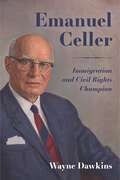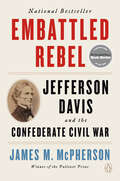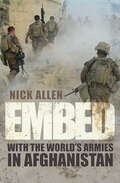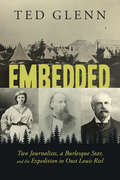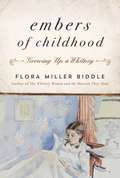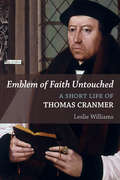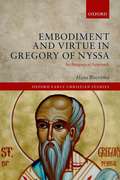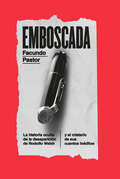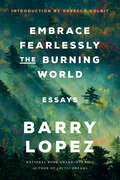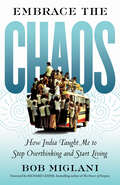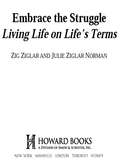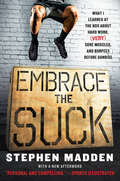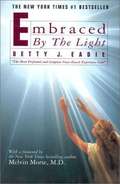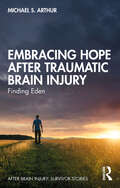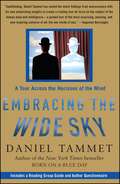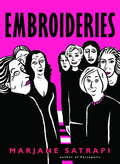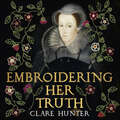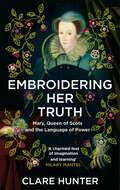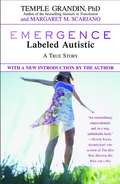- Table View
- List View
Emanuel Celler: Immigration and Civil Rights Champion
by Wayne DawkinsCongressman Emanuel Celler (1888–1981) was a New York City congressman who served in the United States House of Representatives from 1923 to 1973. Celler’s almost fifty-year career was highlighted by his long fight to eliminate national origin quotas as a basis for immigration restrictions and his battles for civil rights legislation. In Emanuel Celler: Immigration and Civil Rights Champion, author Wayne Dawkins introduces new readers to a figure integral to our contemporary political system. Celler’s own immigrant background framed his lifelong opposition to immigration restrictions and his corresponding support for reducing barriers for immigrant entry into the United States. After decades of struggle, he proposed and steered through the House the Hart-Celler Act of 1965, which eliminated national origins as a consideration for immigration, profoundly shaping modern America. Celler was also a consistent advocate for civil rights. As chairman of the House Judiciary Committee from 1949 to 1973 (except for a break from 1953 to 1955), Celler was involved in drafting and passing the Civil Rights Act of 1964, the Voting Rights Act of 1965, and the Civil Rights Act of 1968. During his career he was also deeply involved in landmark antitrust legislation, the establishment of US ties with the state of Israel, and the Gun Control Act of 1968, and was the author of three constitutional amendments, including the 25th that established presidential succession. Dawkins profiles a complex politician who shaped the central tenets of Democratic Party liberalism for much of the twentieth century and whose work remains central to the nation, and our political debates, today.From author Wayne Dawkins:Emanuel Celler (1888–1981) could be the most significant US legislator of the twentieth century. He cosponsored three Constitutional amendments—the twenty-third (voting rights for District of Columbia residents), the twenty-fourth (poll taxes banned), and the twenty-fifth (clear succession established if the president is removed from office). And, as a longtime chairman of the House Judiciary Committee, he reluctantly cosponsored a fourth—the twenty-sixth amendment (18-year-old voting rights).He is also linked to three-hundred laws, notably the Civil Rights Acts of 1957, 1960, 1964 and 1968; the Voting Rights Act of 1965; and his masterpiece, the Hart-Celler Immigration Reform Act of 1965.Over the past decade, Celler, who served fifty years in Congress, has been a supporting cast member in at least a dozen books about immigration or civil rights. He was frequently cited in One Mighty and Irresistible Tide (2020) and noted in two key moments of The Guarded Gate (2019). And he was cited generously in Goliath (2019), a book about Celler’s other passion—antitrust and monopoly busting.But this fall, he will at last be the focus of a full-length biography, Emanuel Celler: Immigration and Civil Rights Champion. And I believe it will become the go-to book for anyone wanting to know more about this history-making legislator.
Emanuel Swedenborg
by Inge JonssonLife and works of the mystic Emanuel Swedenborg (1688-1772). 224 pages. Academic style - not light reading.
Embattled Rebel: Jefferson Davis and the Confederate Civil War
by James M. McphersonFrom the Pulitzer Prize-winning author of Battle Cry of Freedom, a powerful new reckoning with Jefferson Davis as military commander of the Confederacy History has not been kind to Jefferson Davis. Many Americans of his own time and in later generations considered him an incompetent leader, not to mention a traitor. Not so, argues James M. McPherson. In Embattled Rebel, McPherson shows us that Davis might have been on the wrong side of history, but that it is too easy to diminish him because of his cause's failure. Gravely ill throughout much of the Civil War, Davis nevertheless shaped and articulated the principal policy of the Confederacy--the quest for independent nationhood--with clarity and force. He exercised a tenacious hands-on influence in the shaping of military strategy, and his close relationship with Robert E. Lee was one of the most effective military-civilian partnerships in history.Lucid and concise, Embattled Rebel presents a fresh perspective on the Civil War as seen from the desk of the South's commander in chief.From the Trade Paperback edition.ive in American history exercised such tenacious hands-on influence in the shaping of military strategy. And while he was imprisoned for two years after the Confederacy's surrender awaiting a trial for treason that never came, and lived for another twenty-four years, he never once recanted the cause for which he had fought and lost. McPherson gives us Jefferson Davis as the commander in chief he really was, showing persuasively that while Davis did not win the war for the South, he was scarcely responsible for losing it.
Embattled Saints
by Kenneth P. LizzioIn the West, Islam has replaced Communism as the new bugbear, while Sufism, Islam's mystical dimension, is often dismissed as the delusions of an irrational and backward people. Ken Lizzio corrects such misperceptions in this firsthand account of the year he spent in 1991 living with the head of the Naqshbandis, Afghanistan's largest Sufi order. He presents the order in all its dimensions-social, economic, political, and spiritual-at a pivotal moment in history. He also gives a rare glimpse of everyday life in an Afghan Sufi school and of how the school has coped with the upheavals in its country.Poignantly, the Naqshbandi way of life faces threats to its very existence. One threat lies in the creeping secularization of Islamic society, another in the dismissal of Sufism by various fundamentalist Islamic sects claiming the franchise on truth. But historically, Lizzio points out, Sufism has always been Islam's wellspring for spiritual revival. And because Sufis deal in matters that transcend time and cultures, they help outsiders understand not only the true nature of Islam, but the deeper meaning of all religions. The sound of that meaning echoes throughout this eloquent and fascinating memoir.
Embed: To the End With the World's Armies in Afghanistan
by Nick AllenIn 2007, journalist Nick Allen quit a secure job in Pakistan as a news agency writer to experience the life of foreign troops fighting the Taliban in Afghanistan. Over several years he journeyed as an embedded reporter with a dozen armies, working his way through placid backwaters to remote, savage hotspots where daily clashes with insurgent forces were the norm.Driven by a desire to himself live and then convey some of the drama, tragedy, farce and sheer frustration experienced by soldiers and marines from California to Copenhagen, Allen returned again and again for ‘embeds’ with different contingents to explore a multinational effort that will surely define NATO’s future and events in South Asia, and the world, for many years to come. No other writer managed to gain such broad access to the forty-two-country Coalition that was deployed in Afghanistan, or produce an account that carries so much of the essence of soldiering in this inhospitable environment, where extremes of climate, treachery and enemy cunning have always defeated nations that dared to wage war in the ‘graveyard of empires.’Embed explores the fragile calm of Bamiyan and its ancient sites and other low-intensity regions – usually ignored but a vital part of the overall picture – together with the ferocious clashes of Helmand, Kandahar, Kunar and other provinces. The author found that even the most sophisticated armed forces had been sucked into a fight they were ill-prepared for and, amid political uncertainty and dwindling public support back home, ultimately could not win.
Embedded: Two Journalists, a Burlesque Star, and the Expedition to Oust Louis Riel
by Ted GlennA first-hand chronicle of Wolseley’s expedition to end Riel’s Red River Rebellion by a remarkable trio embedded on the mission. In the spring of 1870, two reporters set off from Toronto to cover one of the biggest stories in Canadian history: Colonel Garnet Wolseley’s 1870 expedition to Red River. Over the course of six months, the Daily Telegraph’s Robert Cunningham and the Globe’s Molyneux St. John brought readers along as they paddled and portaged alongside the expedition’s 1,100 troops and 400 voyageurs and guides from the shores of Lake Superior to Fort Garry.But that’s not the whole story. Buried well below the fold was the fact that St. John’s wife — international burlesque star Kate Ranoe — accompanied him and the expedition, and not just as an adventurer. Owing to an accident early on, Ranoe ended up ghostwriting many of St. John’s stories. Embedded is the remarkable story of two reporters and one extraordinary woman as they journeyed to Red River with Colonel Garnet Wolseley and his expeditionary force.
Embers of Childhood: Growing Up a Whitney
by Flora Miller BiddleA Look into the Privileged World of the American Aristocracy of the Early Twentieth Century Flora Miller Biddle was born a blue-blood. The granddaughter of the Whitney museum founder, Gertrude Vanderbilt Whitney, her childhood played out in a sort of Wharton landscape as she was shielded from the woes of the world. But money itself is not the source of happiness. Glimpses into the elegance of a Vanderbilt ball thrown by her great-grandparents and the yearly production of traveling from her childhood home on Long Island to their summer home in Aiken, South Carolina, are measured against memoires of strict governesses with stricter rules in a childhood separate from her parents, despite being in the same house, and the ever-present pressure to measure up in her studies and lessons. As Flora steps back in time to trace the origins of her family’s fortune and where it stands today, she takes a discerning look at how wealth and excess shaped her life, for better and for worse.In this wonderfully evocative memoir, Flora Miller Biddle examines, critiques, and pays homage to the people and places of her childhood that shaped her life.
Emblem of Faith Untouched: A Short Life of Thomas Cranmer (Library of Religious Biography (LRB))
by Leslie Winfield WilliamsRelates one of the most remarkable lives in the tumultuous English Reformation Thomas Cranmer (1489–1556) was the first Anglican Archbishop of Canterbury, the author of the Book of Common Prayer, and a central figure in the English Protestant Reformation. Few theologians have led such an eventful life: Cranmer helped Henry VIII break with the pope, pressed his vision of the Reformation through the reign of Edward VI, was forced to recant under Queen Mary, and then dramatically withdrew his recantations before being burned alive. This lively biography by Leslie Williams narrates Cranmer's life from the beginning, through his education and history with the monarchy, to his ecclesiastical trials and eventual martyrdom. Williams portrays Cranmer's ongoing struggle to reconcile his two central loyalties—allegiance to the crown and fidelity to the Reformation faith—as she tells his fascinating life story.
Emblem of Faith Untouched: A Short Life of Thomas Cranmer (Library of Religious Biography (LRB))
by Leslie Winfield WilliamsRelates one of the most remarkable lives in the tumultuous English Reformation Thomas Cranmer (1489–1556) was the first Anglican Archbishop of Canterbury, the author of the Book of Common Prayer, and a central figure in the English Protestant Reformation. Few theologians have led such an eventful life: Cranmer helped Henry VIII break with the pope, pressed his vision of the Reformation through the reign of Edward VI, was forced to recant under Queen Mary, and then dramatically withdrew his recantations before being burned alive. This lively biography by Leslie Williams narrates Cranmer's life from the beginning, through his education and history with the monarchy, to his ecclesiastical trials and eventual martyrdom. Williams portrays Cranmer's ongoing struggle to reconcile his two central loyalties—allegiance to the crown and fidelity to the Reformation faith—as she tells his fascinating life story.
Embodiment And Virtue In Gregory Of Nyssa: An Anagogical Approach (Oxford Early Christian Studies)
by Hans Boersma<P>Embodiment in the theology of Gregory of Nyssa is a much-debated topic. Hans Boersma argues that this - worldly realities of time and space, which include embodiment, are not the focus of Gregory's theology. Instead, embodiment plays a distinctly subordinate role. The key to his theology, Boersma suggests, is anagogy, going upward in order to participate in the life of God. <P>This book looks at a variety of topics connected to embodiment in Gregory's thought: time and space; allegory; gender, sexuality, and virginity; death and mourning; slavery, homelessness, and poverty; and the church as the body of Christ. In each instance, Boersma maintains, Gregory values embodiment only inasmuch as it enables us to go upward in the intellectual realm of the heavenly future. <P>Boersma suggests that for Gregory embodiment and virtue serve the anagogical pursuit of otherworldly realities. Countering recent trends in scholarship that highlight Gregory's appreciation of the goodness of creation, this book argues that Gregory looks at embodiment as a means for human beings to grow in virtue and so to participate in the divine life. <P>It is true that, as a Christian thinker, Gregory regards the creator-creature distinction as basic. But he also works with the distinction between spirit and matter. And Nyssen is convinced that in the hereafter the categories of time and space will disappear - while the human body will undergo an inconceivable transformation. This book, then, serves as a reminder of the profoundly otherworldly cast of Gregory's theology.
Emboldened: On finding the fire to keep going when all seems lost
by Belinda AlexandraHow do you begin your life again when you've lost everything you've worked for and your dreams have been shattered?That was the question beloved Australian author Belinda Alexandra faced one freezing winter night when she ran from her home in terror, clutching only her wallet, her phone and her latest manuscript on a USB stick.To pull herself up from rock bottom, Belinda drew strength from the real life women who had inspired her bestselling historical fiction: her mother, Tatiana Morosoff, a White Russian who had fled a home more than once due to wars and revolutions; Virginia Hall, an American who lost her leg in an accident but went on to become one of the most revered Allied agents in World War II France; Carmen Amaya, who despite being born into abject poverty in Barcelona rose to become the greatest Flamenco dancer of all time; Edna Walling, who lost her own dream home in a freak fire but created garden designs that made her one of Australia's most celebrated landscape designers.They were women who had faced seemingly insurmountable challenges and found ways to forge ahead on their own terms.In a compelling and exquisite blend of memoir and history, Belinda shows readers that, no matter what challenge they might be facing, there is always the possibility of building a bold life full of meaning again from the ashes.
Emboldened: On finding the fire to keep going when all seems lost
by Belinda AlexandraHow do you begin your life again when you've lost everything you've worked for and your dreams have been shattered?That was the question beloved Australian author Belinda Alexandra faced one freezing winter night when she ran from her home in terror, clutching only her wallet, her phone and her latest manuscript on a USB stick.To pull herself up from rock bottom, Belinda drew strength from the real life women who had inspired her bestselling historical fiction: her mother, Tatiana Morosoff, a White Russian who had fled a home more than once due to wars and revolutions; Virginia Hall, an American who lost her leg in an accident but went on to become one of the most revered Allied agents in World War II France; Carmen Amaya, who despite being born into abject poverty in Barcelona rose to become the greatest Flamenco dancer of all time; Edna Walling, who lost her own dream home in a freak fire but created garden designs that made her one of Australia's most celebrated landscape designers.They were women who had faced seemingly insurmountable challenges and found ways to forge ahead on their own terms.In a compelling and exquisite blend of memoir and history, Belinda shows readers that, no matter what challenge they might be facing, there is always the possibility of building a bold life full of meaning again from the ashes.
Emboscada: La historia oculta de la desaparición de Rodolfo Walsh y el misterio de sus cuentos inéditos
by Facundo PastorFacundo Pastor reconstruye la emboscada que terminó hace 45 años con la desaparición de Rodolfo Walsh, en la que no faltan doble agentes, traiciones y documentos de inteligencia militar, ocultos hasta hoy. Y también desentraña otro misterio: el destino de algunos cuentos del periodista, que aún, y como su cuerpo, siguen sin aparecer. Aquel mediodía del 25 de marzo de 1977, hace 45 años, Rodolfo Walsh llegó puntual a una cita que tenía programada en la esquina de las avenidas San Juan y Entre Ríos, en el centro de la ciudad de Buenos Aires. La reunión había sido confirmada respetando los códigos de seguridad de la clandestinidad: contraseñas secretas y chequeos telefónicos. No sabía que, en verdad, un operativo, que incluía un francotirador, lo estaba esperando para capturarlo. En esta investigación, Facundo Pastor reconstruye, con ritmo de novela policial, cómo se armó la emboscada que terminó con la desaparición de Rodolfo Walsh, en la que no faltan dobles agentes, traiciones y una serie de documentos desclasificados de inteligencia militar que permanecían secretos hasta este libro. Y también intenta desentrañar otro misterio: el destino de los papeles personales y algunos cuentos del periodista que aún hoy, y como su cuerpo siguen sin aparecer.
Embrace Fearlessly the Burning World: Essays
by Barry LopezAn urgent, deeply moving final work of nonfiction from the National Book Award–winning author of Arctic Dreams and Horizon, a literary icon whose writing, fieldwork, and mentorship inspired generations of writers and activists. ONE OF THE MOST ANTICIPATED BOOKS OF 2022—Lit Hub, BookPageAn ardent steward of the land, fearless traveler, and unrivaled observer of nature and culture, Barry Lopez died after a long illness on Christmas Day 2020. The previous summer, a wildfire had consumed much of what was dear to him in his home place and the community around it—a tragic reminder of the climate change of which he&’d long warned.At once a cri de coeur and a memoir of both pain and wonder, this remarkable collection of essays adds indelibly to Lopez&’s legacy, and includes previously unpublished works, some written in the months before his death. They unspool memories both personal and political, among them tender, sometimes painful stories of his childhood in New York City and California, reports from expeditions to study animals and sea life, recollections of travels to Antarctica and other extraordinary places on earth, and meditations on finding oneself amid vast, dramatic landscapes. He reflects on those who taught him, including Indigenous elders and scientific mentors who sharpened his eye for the natural world. We witness poignant returns from his travels to the sanctuary of his Oregon backyard, adjacent to the McKenzie River. And in prose of searing candor, he reckons with the cycle of life, including his own, and—as he has done throughout his career—with the dangers the earth and its people are facing.With an introduction by Rebecca Solnit that speaks to Lopez&’s keen attention to the world, including its spiritual dimensions, Embrace Fearlessly the Burning World opens our minds and souls to the importance of being wholly present for the beauty and complexity of life.
Embrace the Chaos: How India Taught Me to Stop Overthinking and Start Living (Bk Life Ser.)
by Bob MiglaniLike many of us, Bob Miglani felt overwhelmed and anxious. He worried constantly about his job, his finances, and his family. It was a chance invitation to India, the land of his birth, that finally freed him. India, Miglani writes, is “the capital of chaos”: over a billion people living on one-third the space of the United States. And it was there that he learned to let go. The secret is to stop trying to control the chaos and focus on what you can control—your own actions, words, and thoughts. Move forward, make mistakes, trust your intuition, find your purpose. In this inspiring book, Miglani shares the experiences and encounters that helped him finally get it. What happens when you find yourself in an Indian village with no money and a plane to catch? How could an educated urban woman agree to a marriage after two dates? What keeps a rural health worker motivated despite the enormous need and such limited ability to help? What does trying to catch an insanely overcrowded bus teach you about perfection? Embracing the chaos, Miglani found, “leads us down paths we never would have walked on...It brings out strengths we never knew existed inside of us.”
Embrace the Struggle: Living Life on Life's Terms
by Zig Ziglar Julie Ziglar NormanOne of the leading stars in the "positive thinking" movement, Zig Ziglar has made a career out of telling people how to have a positive attitude, no matter what their circumstances are. But when a fall down a stairway onto a marble floor leaves him with a head injury, he is challenged with how to put the principles he'd been speaking about into practice. Ziglar's willingness to be transparent has him back writing and speaking with renewed energy before audiences in the tens of thousands to show that life on life's terms is still well worth living. Embrace the Struggle affirms the validity of the principles Ziglar has held true his entire life and includes not only his account of living positively through difficult circumstances; it also includes heartwarming stories of real people who encouraged him with how they put into practice these vital principles.
Embrace the Suck: What I Learned at the Box ABout Hard Work, (Very) Sore Muscles, and Burpees Before Sunrise
by Stephen MaddenTO BE FIT, OR CROSSFIT?Lifelong amateur athlete Stephen Madden immersed himself in the culture, diet, and psyche of CrossFit—the fast-growing but controversial fitness regime that’s a stripped-down combination of high-intensity aerobic activity, weightlifting, calisthenics, and gymnastics. Madden is just one of more than two million athletes worldwide to do so. In Embrace the Suck, the former editor in chief of Bicycling magazine explores with irreverence, humor, and soul-touching candor the fitness revolution sweeping America. Madden chronicles the year he devoted to trying to master all the basic CrossFit exercises, like double unders, muscle-ups, and kipping pull-ups, and immersing himself in the Paleo diet that strips weight from its followers but leaves them fantasizing about loaves of bread. Along the way, he explores the culture of the sport, his experience of becoming a CrossFit coach, and some basic questions about himself, his past, and his athletic limitations—and why something so difficult and punishing can be at once beautiful, funny, and rewarding.Whether you are a CrossFitter or a nascent athlete, you will come away from this book understanding the limitless potential of the human body and mind, and will learn what it takes to welcome and defeat any kind of suck.
Embraced By The Light
by Melvin Morse Betty J. Eadie Curtis TaylorLeft Book Jacket: "At the age of thirty-one, Betty Eadie died in a hospital after undergoing surgery. The events that followed have been called "the most profound near-death experience ever." Adding to such accounts as George Ritchie's Return From Tomorrow and Dr. Raymond A. Moody's Life After Life, Betty Eadie's experience offers astonishing proof of a life after physical death. She saw mote, perhaps, than any other person has seen before, and she came back with an almost photographic view. She was given a message to share with others that has filled hundreds of thousands with hope and a renewed desire to love. Embraced By The Light recounts the people she met, the truths she learned, and the magnificent realities of the spirit world. Betty's life was changed forever. Her experience was so powerful that it remains with her every hour of each day. In sharing it, she hopes that it may touch the hearts of others, bringing them closer to the Love that awaits us all."
Embracing Hope After Traumatic Brain Injury: Finding Eden (After Brain Injury: Survivor Stories)
by Michael S. ArthurThis important book provides a firsthand account of a university professor who experienced traumatic brain injury. It tells the story of Michael Arthur, who had recently accepted a position as vice principal of a new high school. After only two weeks on the job, he was involved in a car accident while driving through an intersection in northern Utah. Through his personal account, he takes the reader into the dark interworkings of his mind as he tries to cope with his new reality. He provides insight into how he learned how to process information and even speak without stumbling on his words while also sharing how his significant relationships suffered as he tried to navigate the restless seas of doubt while trying to circumvent his unyielding symptoms. The book is about finding optimism and gaining insight into the struggles of the brain-injured patient and about trying to understand the perspectives of loved ones who can’t quite grasp the idea of an invisible injury. From the sudden onset of garbled speech to the challenges of processing information, the changing dynamic of the author’s life is highlighted to help family members and healthcare workers better understand.
Embracing the Wide Sky: A Tour Across the Horizons of the Mind
by Daniel TammetOwner of "the most remarkable mind on the planet," (according to Entertainment Weekly) Daniel Tammet captivated readers and won worldwide critical acclaim with the 2007 New York Times bestselling memoir, Born On A Blue Day, and its vivid depiction of a life with autistic savant syndrome. In his fascinating new book, he writes with characteristic clarity and personal awareness as he sheds light on the mysteries of savants' incredible mental abilities, and our own.
Embroideries
by Marjane SatrapiEmbroideries gathers together many of the women in Marjane Satrapi's life - her beloved grandmother, her mother, an eccentric aunt, their friends and neighbours - for an afternoon of tea-drinking and talking. And as is only to be expected when a group of women reunite around cups of tea, the subjects turn to love, sex and the vagaries of men - in this case, Iranian men. As the afternoon progresses, these colourful women share their secrets about, among other things: how to fake your virginity, how to escape the husband your family has chosen for you, how to enjoy the miracles of plastic surgery and how to take advantage of being someone's mistress. By turns revealing and hilarious, these are stories about the lengths to which some women will go to find a man, to keep a man, or just to keep up appearances. We also witness tearful confessions and heavy-hearted tales of regret and betrayal, of unhappy marriages and of young women forced or choosing to marry for all the wrong reasons. And though love is mostly to blame, there's no missing the message that much of their suffering is due to a culture that prizes men above women and makes a woman's worth dependent on her virginity. Full of surprises, this introduction to the private lives of some very interesting ordinary women also demonstrates brilliantly how much women the world over have in common.
Embroidering Her Truth: Mary, Queen of Scots and the Language of Power
by Clare HunterAn alternative biography of Mary, Queen of Scots through the textiles of her life from the author of Sunday Times bestseller Threads of Life.I felt that Mary was there, pulling at my sleeve, willing me to appreciate the artistry, wanting me to understand the dazzle of the material world that shaped her.At her execution Mary, Queen of Scots wore red. Widely known as the colour of strength and passion, it was in fact worn by Mary as the Catholic symbol of martyrdom.In sixteenth-century Europe women's voices were suppressed and silenced. Even for a queen like Mary, her prime duty was to bear sons. In an age when textiles expressed power, Mary exploited them to emphasise her female agency. From her lavishly embroidered gowns as the prospective wife of the French Dauphin to the fashion dolls she used to encourage a Marian style at the Scottish court and the subversive messages she embroidered in captivity for her supporters, Mary used textiles to advance her political agenda, affirm her royal lineage and tell her own story.In this eloquent cultural biography, Clare Hunter exquisitely blends history, politics and memoir to tell the story of a queen in her own voice.(P) Hodder & Stoughton Limited
Embroidering Her Truth: Mary, Queen of Scots and the Language of Power
by Clare HunterI felt that Mary was there, pulling at my sleeve, willing me to appreciate the artistry, wanting me to understand the dazzle of the material world that shaped her.At her execution Mary, Queen of Scots wore red. Widely known as the colour of strength and passion, it was in fact worn by Mary as the Catholic symbol of martyrdom.In sixteenth-century Europe women's voices were suppressed and silenced. Even for a queen like Mary, her prime duty was to bear sons. In an age when textiles expressed power, Mary exploited them to emphasise her female agency. From her lavishly embroidered gowns as the prospective wife of the French Dauphin to the fashion dolls she used to encourage a Marian style at the Scottish court and the subversive messages she embroidered in captivity for her supporters, Mary used textiles to advance her political agenda, affirm her royal lineage and tell her own story.In this eloquent cultural biography, Clare Hunter exquisitely blends history, politics and memoir to tell the story of a queen in her own voice.
Embroidering Her Truth: Mary, Queen of Scots and the Language of Power
by Clare HunterI felt that Mary was there, pulling at my sleeve, willing me to appreciate the artistry, wanting me to understand the dazzle of the material world that shaped her.At her execution Mary, Queen of Scots wore red. Widely known as the colour of strength and passion, it was in fact worn by Mary as the Catholic symbol of martyrdom.In sixteenth-century Europe women's voices were suppressed and silenced. Even for a queen like Mary, her prime duty was to bear sons. In an age when textiles expressed power, Mary exploited them to emphasise her female agency. From her lavishly embroidered gowns as the prospective wife of the French Dauphin to the fashion dolls she used to encourage a Marian style at the Scottish court and the subversive messages she embroidered in captivity for her supporters, Mary used textiles to advance her political agenda, affirm her royal lineage and tell her own story.In this eloquent cultural biography, Clare Hunter exquisitely blends history, politics and memoir to tell the story of a queen in her own voice.
Emergence: Labeled Autistic
by Temple Grandin Margaret M. ScarianoA true story that is both uniquely moving and exceptionally inspiring, Emergence is the first-hand account of a courageous autistic woman who beat the odds and cured herself. As a child, Temple Grandin was forced to leave her "normal" school and enroll in a school for autistic children. This searingly honest account captures the isolation and fears suffered by autistics and their families and the quiet strength of one woman who insisted on a miracle.
